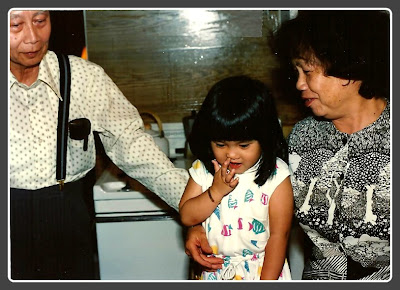 |
| a still from the kony 2012 film |
no doubt, you have seen all the kony 2012 posts on facebook and twitter. but have you watched the 30 minute film that launched this swift movement taking over your newsfeed?
let's talk about this film with its cool, fast-paced editing, mumford & son's background music, and its aerial shots of white kids forming a peace sign---or even better, white kids with their fists in the air.
 |
| look at this picture, what do you see? or better yet, what do you not see? |
invisible children, the nonprofit that put out the film, has come under fire for several things, most widely circulated online is the critique of their spending: it seems
only about 32% of their $8.8mil earnings last year was spent on ground operations in uganda. the rest went toward movie production, travel, employee salaries, and such. but a big question a few people are asking is where is uganda in all of this talk? why aren't you targeting any ugandan leaders among your 20 culture makers and 12 policy makers?

the film absolutely has a western hero/savior complex that, by leaving africa out of the conversation, paints africa as helpless and incompetent. this
we must save our little brown brothers complex is visually perpetuated in the movie 17 minutes and 35 seconds in with this shot and voiceover declaring, "the unseen became visible", implying that it takes being surrounded by (mostly) white people for a black child to become visible.
Teddy Ruge from
Project Diaspora, an american organization that works to "mobilize african diaspora in the states to engage with the continent" expressed his frustration with this imaging:
What I'd really like is for organisations like this to have a little bit more respect for individuals like ourselves who have the capability to speak for ourselves. By putting themselves as the heroes of our situation it debilitates our own ability to progress and develop our own capacity. ...it's not everybody's responsibility to come and rescue us. We're not babies.
All ill roads are built on good intentions. Meaning well doesn't give you the right to march into my house and tell me how to live. It does not offer you that right. Uganda is my country, my brothers, cousins and countrymen.
when i first saw the film, i couldn't shake the manipulative and emotive gloss and storyline; the narrator kept making the comparison between his son, dressed in a purple cardigan, khakis, and flip-flops, with the ugandan children. what is the role of his son in this film? while i agree wholeheartedly that children deserve the best life and opportunities, regardless of origin, i thought he was pandering or exploiting the audience's feelings toward this blonde, dimpled little boy. is america only able to feel sympathy if they can use a white child as a reference point?
and of course, there is the over simplification of the conflict and what was not mentioned in the film, like
joseph kony has not been in uganda for over 6 years. is your mind blown? yeah, me too.
i understand that this man has overseen and lead the operations of heinous crimes, and i support the
invisible children's desire to call attention to it. hell, i even admire how quickly they were able to reach such a vast audience;
however, i do not agree with their approach. their film, and the reasons behind their call to action, is condescending, self-indulgent, and manipulative.
it is one thing to tell (white, according to their film) americans:
hey, this is happening in the world. pay attention. but it is sometime entirely different to yell:
hey, this is happening in the world and only you can stop it and save them.
i don't want to discourage youth activism by any means, i only ask that you do your research and allow more than a shiny, well-scored film to shape your thinking. watch the
kony 2012 film and the many that will come after it, and ask yourself:
now what? what do i do with this information?
otherwise, it's like journalist, Michael Wilkerson,
writes:
it is unclear how millions of well-meaning but misinformed people are going to help deal with the more complicated reality.
at the very least following this viral campaign, perhaps a few more fingers in generation y can find their way when asked to point out the country of uganda on a map.
perhaps.
for a lot of information, both critical and supportive, on
kony 2012 and about the situation in uganda, check out
the guardian's post.
invisible children also posted
responses to several critiques, including the savior complex motif. (weak in my opinion.)
-melissa























